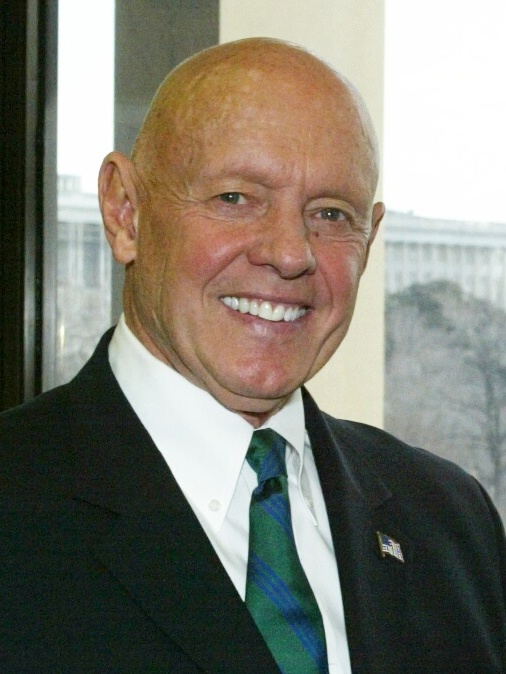MG writes: "I am looking for information on The Seven Habits program. My children go to a Catholic school that has incorporated the program into the counciling program. I have been trying to find out more about The Seven Habits program because of what I will call a "gut" feeling. I do not what to go to the school before I have more information to back up my uneasy feelings. Is the program ok and if not where can I look to get more information?"
MG, You have definitely done your school and community a great service by listening to the promptings of the Spirit and questioning whether Stephen Covey's The Seven Habits of Highly Effective People should be used in your school.
The answer is no, and if the administrators are willing to do some homework (no pun intended) they'll understand why they should pass on Covey's ideas.
First of all, Covey's book is included among the many New Age self-help books on the market, a list that includes The Secret, The New Earth, The Celestine Prophecy, etc. These books, along with a variety of motivational training programs, are part of a New Age movement known as the human potential movement. This movement promotes a human-centered psychology based on the belief that a person is in complete control of their destiny.
Covey is a devout Mormon who has served the Church of Jesus Christ of Latter-Day Saints in various positions, including as a bishop and missionary. In a previous book entitled The Divine Center, written in 1982 for a Mormon, he speaks about centering one's life in the god of Mormonism. Many of these concepts are included and built upon in The Seven Habits, which he wrote seven years later for a non-Mormon audience.
What's interesting to note about this is that in The Divine Center, Covey advises fellow Mormons not to hesitate "to work within the vocabularies of others to communicate our meanings ...we can teach and testify of many gospel principles if we are careful in selecting words which carry our meaning but come from their experience and frame of mind" (DC p. 240).
These "gospel principles" that he talks about are not from our Bible. He claims they are principles that are part of every "major enduring religion" and that the more closely "our maps and paradigms are aligned with these principles or natural laws, the more accurate and functional they will be" (p. 35).
The maps he describes sound innocent except when you consider the fact that Covey openly states in The Divine Center that the only true and correct map is found in the LDS Church.
In addition to all this, keep in mind that Mormons do not believe in the Trinity, hell, original sin, and think salvation is earned through deeds and intelligent problem solving, not through the crucifixion and death of Jesus Christ.
Mormonism is the mind-set of Covey, and if he's using our language to convey Mormon ideas in The Seven Habits, a tactic this missionary has recommended to others, that's a big problem for Catholics.
As one apologetics group wrote: "Churches and religious organizations should seriously reconsider whether it is appropriate to use a personal growth program that is written by someone who believes these false doctrines."
An article written by James L. Heft and appearing in Catholic Education gives a lengthy explanation of what's wrong with Covey's approach and why it doesn't belong in Catholic schools.
Another article found in the EWTN library has this to say about The Seven Habits:
The word "God" only appears in the last page in his personal note, where he recognizes that no change can come to us without the intervention of God. However, throughout his book, "spiritual" and "Church" seem to be notions that are completely divorced from God. Spiritual renewal is more like Yoga exercises. "Church" is a social activity which, at times, may be disruptive.
"Covey, the great communicator, does not seem to communicate much with his God. He never requests His help to bring about change in his habits and personality. The metanoia he prescribes is purely secular."
But his involvement in Mormonism isn't the only problem. He's also heavily invested in New Age practices and refers to many of these modalities in The Seven Habits. While he mentions subliminal programming, neurolinguistic programming and "new forms of relaxation and self-talk processes" as "fundamentally sound," the practice of visualization is very prominent in The Seven Habits.
As one apologist wrote: "These meditation/self hypnosis techniques, according to Covey, involve getting the mind in a relaxed state through deep breathing and progressive muscle relaxation for the purpose of reprogramming or rescripting oneself (p. 133), are forms of programming (p. 135) and are powerful in that "if you visualize the wrong thing you will produce the wrong thing" (p. 134)."
This apologist goes on to recommend: "Christians seek that which will help them overcome problem areas. As we seek such or help others in their quest, we must be very careful, exercising discernment (1 Thessalonians 5:21 ) as to whom and what we endorse; remembering not all that offers a solution to life problems is of God (2 Corinthians 11:13-14 ; Matthew 7:15 ; Proverbs 14:12 ). If it does not pass the test of Scripture it is of no profit and should be avoided."
I've included the links to these articles so that you can print them and take them to your administrators for their review.
Thanks so much for writing to us, MG, and for performing this great act of mercy for your neighbors!
© All Rights Reserved, Living His Life Abundantly®/Women of Grace® http://www.womenofgrace.com

